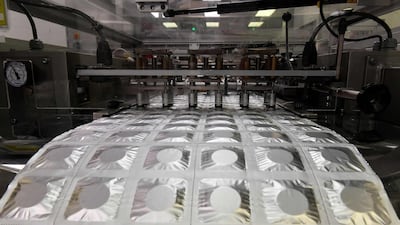Bristol-Myers Squibb agreed to acquire Celgene in a $74 billion cash-and-stock deal that unites two cancer-drug makers in one of the largest pharmaceutical-company mergers ever.
Under the terms of the proposed deal, Celgene shareholders will receive one Bristol-Myers Squibb share and $50 in cash for each Celgene share held, according to the companies on Thursday. That would value Celgene at $102.43 a share, a 54 percent premium to the stock’s closing price on January 2.
Celgene shares soared more than 30 per cent to $87.20 in pre-market trading in New York, while Bristol shares fell more than 16 per cent to $44.
The transaction would combine two companies that both have strong-selling cancer drugs but that have also faced investor scepticism about their growth prospects. Bristol-Myers shares declined more than 15 per cent in 2018, while Celgene shares sank more than 41 per cent.
The deal is Bristol’s largest under chief executive Giovanni Caforio, and comes after the drug maker has suffered some high-profile setbacks in immuno-oncology, its biggest line of business.
_______________
Read more:
China drug makers erase $26bn value as price cuts rile market
Why Johnson & Johnson lost $45 billion in one day
_______________
Bristol has been under pressure to diversify its portfolio. It currently gets roughly a quarter of its sales from immune-harnessing cancer drug Opdivo, which faces competition from Merck’s rival immunotherapy drug Keytruda. In a recent earnings call, Caforio said the company would look to deals to diversify its pipeline. At various points in recent years as Bristol has stumbled with trial failures, its name has come up as a takeout target itself.
In purchasing Celgene, Bristol will get control of one of the most successful cancer drugs of recent years, the top-selling blood-cancer therapy Revlimid, which costs more than $100,000 a year. It will also gain a promising experimental CAR-T therapy being developed by Juno Therapeutics, which Celgene acquired in a $9bn takeover deal last year.
Despite Revlimid’s success, Celgene shares have been hammered over the past year and a half amid investor fear that the company lacks a potent successor to its biggest blockbuster. Revlimid is expected to face increased generic competition in coming years.
The Summit, New Jersey-based company suffered a series of high profile setbacks including the failure of a once promising therapy in a late-stage clinical trial. The US Food and Drug Administration also refused to review an experimental medicine that was expected to be a future growth driver.

